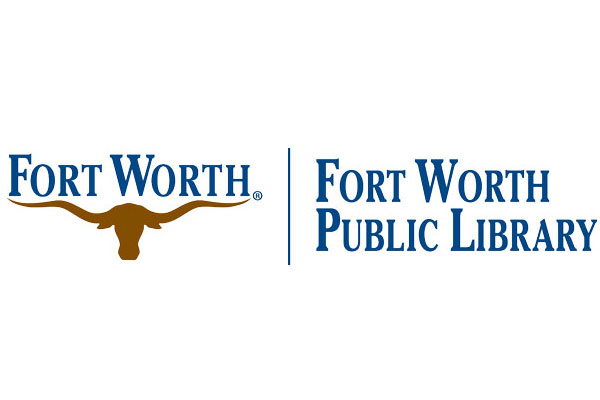Joseph Riedel of the Fort Worth Public Library kindly took the time to answer questions from Sara Brumfield of FromThePage, and discussed their project and experience using the platform.
Joseph Riedel is the librarian assistant at the Fort Worth Public Library.
First, tell us about your documents.
The Genealogy, Local History & Archives Unit of the Fort Worth Public Library collects primary and secondary materials on the history of Fort Worth, its institutions, organizations, and people. It is also the official municipal archives for the City of Fort Worth. We have records of early meetings of the Mayor and City Council and we have digitized those from 1895-1903. We began publishing these records in our digital archives, but found the process to be very slow going because they were mostly hand-written and needed transcription prior to being indexed. Working with FromThePage has allowed us to make these historically valuable documents of correspondence, reports, petitions, and permits available to researchers much more quickly.
We also have the diaries of a local attorney available for transcription, and are working to add to our collection of the papers of botanist Albert Ruth, who collected the first Texas herbarium of record.
What are your goals for the projects?
Our goals for the projects are two-fold. FromThePage allows the public to have meaningful interaction with our collections. We know that transcribers enjoy being able to make a contribution to the historical record, often from the comfort of their own home—something that has been really important during the pandemic when people who normally volunteer in person were unable to do so. Some of them find the records interesting or even entertaining. Also, participation in this project helps us make our digitized records more useful to researchers by speeding up the indexing process. We are working to identify handwritten documents in other collections for transcription, such as letters and minute books.
How are you recruiting or finding volunteers/collaborators?
When we launched our FromThePage projects, we created tutorial video on how to access Fort Worth Public Library’s collections in FromThePage and begin transcribing. We also held a virtual transcribe-a-thon. However, our greatest success has been the contribution of random transcribers who have transcribed other collections throughout FromThePage, potentially from across the nation and worldwide.
Can you share your experience using FromThePage?
My experience with FromThePage has by far exceeded my expectations. For instance, over 8,000 pages of the City of Fort Worth Mayor & Council Proceedings, have been transcribed on FromThePage in a little over a year. As a result, two years of council proceedings have been added to our online collection in the Fort Worth Public Library Digital Archives.
Specifically, in regards to the City of Fort Worth Mayor & Council Proceedings, FromThePage has reduced the amount of time spent for preparing such documents for publishing in our digital archives. In 2015, when we first began preparations for creating an online collection for the council proceedings, I was one of three staff members who worked on this project. The council proceedings for one meeting usually included about 150 scanned documents. Most of the documents were handwritten with varying degrees of legibility. In my own work on the collection, it would take at least 20 hours to read through the handwritten documents. This was a necessary step, in order to even know the subject matter of each document
After a ten-month period, we stopped work on that collection, once we had published council proceedings from 1895-1896. Over the course of four years, various staff would occasionally return to working on that collection, resulting in publishing all council proceedings from 1897. Now that we have crowdsourced transcriptions, many of the aforementioned steps are eliminated. We now simply upload the single item scans from a particular council meeting along with the transcriptions as a compound object in CONTENTdm. The final published product displays a transcription for each individual page, that is also keyword searchable. With the available transcriptions, I can likely upload to CONTENTdm an entire year of council proceedings in 30-40 hours spread out over a one-month period. The Mayor & Council Proceedings Collection in the digital archives has been extend to cover through the year 1899. More years will likely be added with reduced effort and time.
How does FromThePage & crowdsourcing fit with special collections and archives?
FromThePage and crowdsourcing fit with special collections and archives because we have such need to make the historical record accessible to the public. Most people are unaware of the lengthy process required to make digital images of textual documents discoverable. This issue is compounded by handwritten documents, which are frequently found in special collections and archives. There are people who enjoy working with historical records even if they are not working on a research project, and this intersection is what makes FromthePage brilliant. Using crowdsourced transcription to speed up the process of indexing and publishing records to digital archives helps institutions make their collections discoverable from anywhere—something that has been proven to be valuable during the pandemic.
Anything else you'd like to tell us?
While crowdsourced transcription is obviously beneficial for improving access to handwritten documents, it is also useful for typed documents. It has been my experience that documents created on typewriters in the late 19th and early 20th centuries have irregular margins, lines, and typed-over script. These characteristics make optical text recognition (OCR) nearly impossible, and the results are unreliable. Crowdsourced transcription easily solves this problem. Even though such documents can be easily read by the human eye, transcription leads to keyword searchability.
Need historical materials transcribed by dedicated volunteers? Reserve a call with Ben and Sara.




